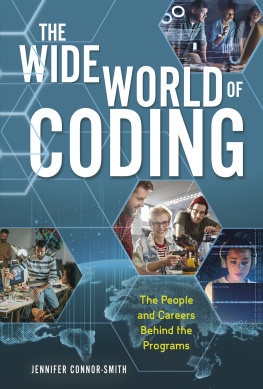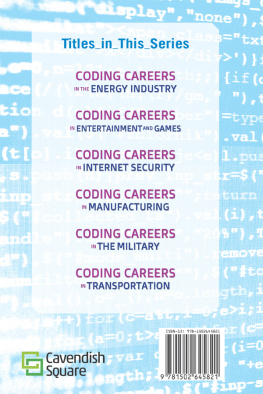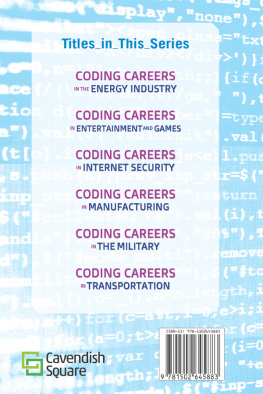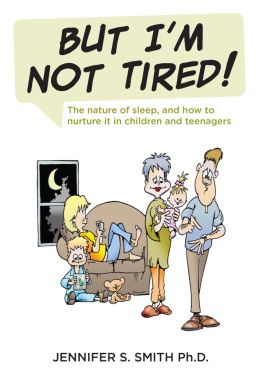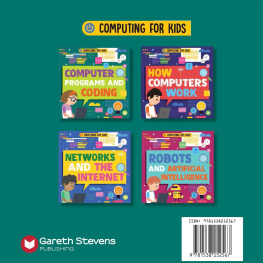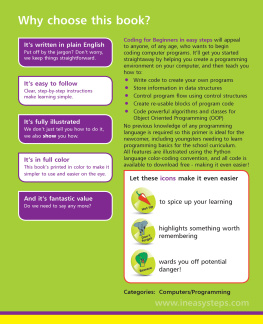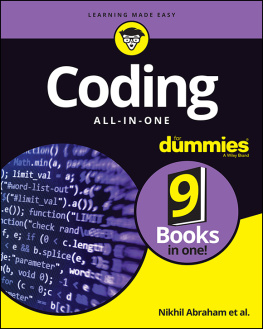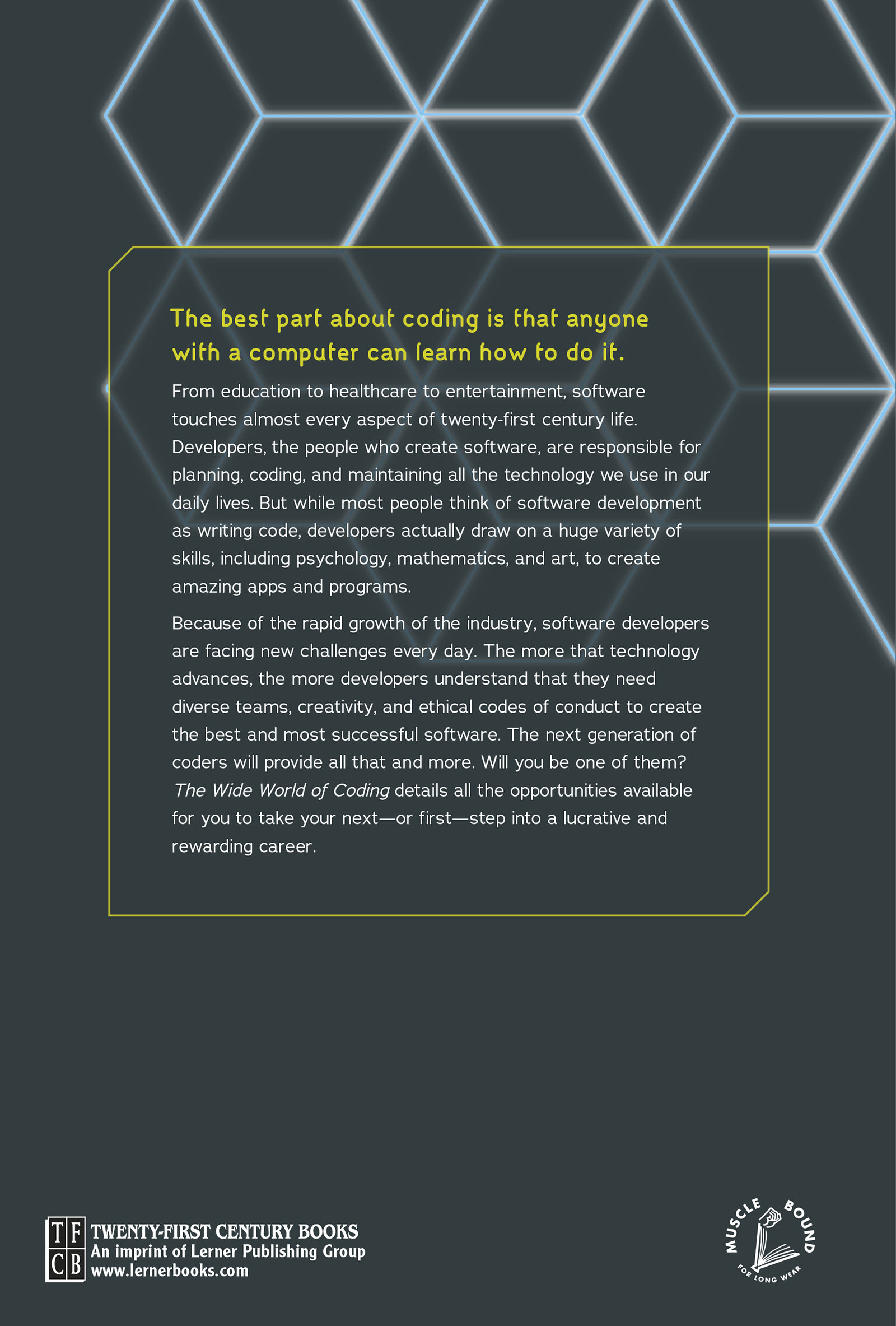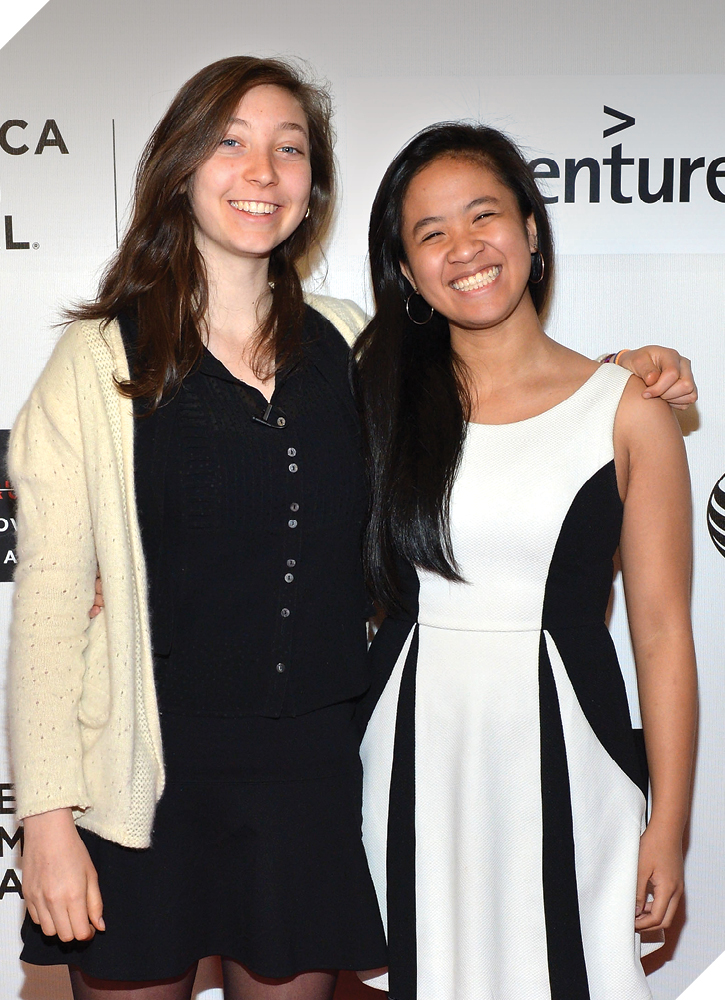To Casey, Celia, Mallory, and all the inspirational people using code to build a better world
ACKNOWLEDGMENTS
Thank you to all the people and organizations dedicated to opening doors for the next generation of developers.
A special thank-you to Casey Smith, who has double-checked my work, answered every coding-related question Ive asked, and volunteered himself into creating custom apps that make my work easier.
Text copyright 2020 by Lerner Publishing Group, Inc.
All rights reserved. International copyright secured. No part of this book may be reproduced, stored in a retrieval system, or transmitted in any form or by any meanselectronic, mechanical, photocopying, recording, or otherwisewithout the prior written permission of Lerner Publishing Group, Inc., except for the inclusion of brief quotations in an acknowledged review.
Twenty-First Century Books
An imprint of Lerner Publishing Group, Inc.
241 First Avenue North
Minneapolis, MN 55401 USA
For reading levels and more information, look up this title at www.lernerbooks.com .
Main body text set in Adrianna Condensed.
Typeface provided by Chank.
Library of Congress Cataloging-in-Publication Data
Names: Connor-Smith, Jennifer, 1972 author.
Title: The wide world of coding : the people and careers behind the programs / by Jennifer Connor-Smith.
Description: Minneapolis, MN : Twenty-First Century Books, [2020] | Includes bibliographical references and index. | Audience: Age 1218. | Audience: Grades 912. |
Identifiers: LCCN 2019009071 (print) | LCCN 2019012439 (ebook) | ISBN 9781541580909 (eb pdf) | ISBN 9781541552821 (lb : alk. paper)
Subjects: LCSH: Computer programmingVocational guidanceJuvenile literature. | Computer programmersJuvenile literature.
Classification: LCC QA76.25 (ebook) | LCC QA76.25 .C566 2020 (print) | DDC 005.1023dc23
LC record available at https://lccn.loc.gov/2019009071
Manufactured in the United States of America
1-45658-41685-10/9/2019
Contents
Chapter 1
Diving into Development
Chapter 2
Bringing Programs to Life
Chapter 3
Programming Languages
Chapter 4
Managing and Manipulating Data
Chapter 5
The Psychology of Software
Chapter 6
Software Development Ethics
Chapter 7
Diversity in Computer Science
Chapter 8
What Lies Ahead?
Introduction
I n summer 2014, high school students Andrea (Andy) Gonzales and Sophie Houser met at a Girls Who Code immersion program in New York City. Andy came with basic coding skills, but Sophie had no idea what she was getting into. She knew coding involved a language, but wondered, Was it letters or numbers or a mixture of both? Did you do it in a Google doc, or did you need a special program to code? She had struggled with learning Spanish in school and wanted to know, Would I have to make flash cards and memorize coding nouns and coding verbs and coding tenses?
A few weeks later, Sophie had a handle on several programming languagesno flash cards requiredand was ready to partner with Andy to build an app. As they tossed around ideas, Andy complained about video games featuring scantily clad female characters and gory deaths. The pair realized how strange it is that people accept bloody video games but freak out about women getting their periods.
Frustrated by the taboo around menstruation, Sophie and Andy decided to make both a game and a point. To bolster their case, they collected stories about period-related stigma. Many were frustrating, such as girls in India missing school because they lacked crucial supplies. Others were amusing, such as when Texas officials allowed guns into the Texas State Capitol but confiscated wrapped tampons they feared women might throw in protest.
Sophie and Andys vision for Tampon Run came together quickly. Players would pelt enemies with tampons and reload by leaping for tampon boxes. Coding the game took much longer. Sophie thought it would only take an hour to make their character jump, but a morning of troubleshooting stretched through the afternoon. By the end of the day, she hated her immobile character, her code, her computer, and her lack of coding skills. Finally, while preparing to bike home, she realized her character was simply jumping too quickly for anyone to seean easy problem to fix. Andy had a similar experience. She thought getting their character to run would be easy, but ended up watching online tutorials and wrestling with the code until three in the morning.
After weeks of coding, Sophie and Andy braced themselves to share the game with an audience of families and tech mentors. Sophie dreaded public speaking and didnt want to talk about tampons, or anything else, in front of a crowd. Andy feared her conservative parents would disapprove of a tampon-throwing game entirely. As it turned out, neither needed to worry. Sophie forgot her lines but read her note card to enthusiastic applause. Andys parents simply admired her hard work.
Sophie Houser ( left ) and Andrea Gonzales attend the Tribeca Disruptive Innovation Awards at the 2015 Tribeca Film Festival in New York City.
Buoyed by their success, Sophie and Andy shared the game online. To their surprise, Tampon Run went viral, attracting coverage from media companies such as CNN, BuzzFeed, and Teen Vogue and winning a Webby Peoples Voice Award. Sophie and Andy worked with the tech company Pivotal Labs to produce an iPhone version of the game, spoke at TEDx, and wrote a book, Girl Code: Gaming, Going Viral, and Getting It Done .
When Sophie was asked to describe her superpower, at first, she couldnt think of an answer. She didnt have any special skillsshe just tried hard. Suddenly, she realized trying hard was her superpower, saying, When I set a goal for myself, I do whatever it takes to achieve it, even when it feels like an impossible challenge at first. With those simple words, Sophie captured the magic of succeeding as a software developer. Coding doesnt take a genius-level IQ or an obsession with technology, just a willingness to keep moving forward, one step at a time.
After graduating from high school, Sophie and Andy both kept moving forward. Andy majored in computer science at the University of North CarolinaChapel Hill and interned at Microsoft. Sophie majored in computer science at Brown University and interned with Facebook. They also had plenty of time to explore other interests. Andy produced podcasts and volunteered with people living in supportive housing. Sophie ran engineering clubs for elementary school students and taught sex education classes.
Unlike Sophie and Andy, most developers wont get national attention for their work. But the girls story reflects many stories from those who enter the field of software development. People from all different backgrounds, with a wide range of interests, become developers. Like Sophie, many start out feeling a bit intimidated before discovering how easy coding can be.
In 2018 over 22 million people around the world worked as software developers.Despite stereotypes portraying developers as brilliant, coding-obsessed nerds, developers are ordinary people who spend their free time hanging out with friends and family, watching TV, volunteering, creating art, or playing sports.

